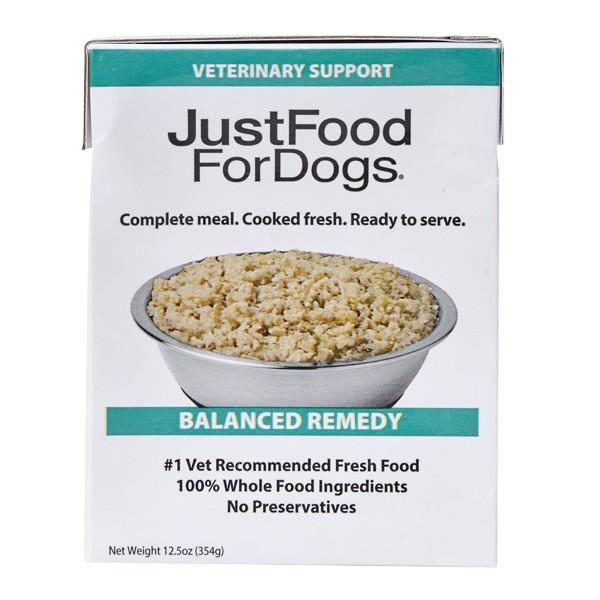The Dog Tale is reader-supported. We may earn a commission if you buy something through our site; this doesn’t change our recommendations.
Can dogs have Irritable Bowel Syndrome or Inflammatory Bowel Disease? Yes, they can; no, they aren’t the same thing; and both can cause troubling symptoms that require a vet’s attention. Here’s what you need to know to identify and address these two health issues.
In this guide:
- What are IBD and IBS in dogs?
- Is IBS the same as IBD?
- What causes IBS in dogs?
- What causes IBD in dogs?
- How do I know if my dog has IBD?
- How to treat IBS and IBD in dogs
- Conclusion & references
What are IBS and IBD in dogs?
Inflammatory Bowel Disease (IBD) and Irritable Bowel Syndrome (IBS) are two gastrointestinal health issues that plague the bowels of both humans and dogs. They have similar symptoms, primarily chronic diarrhea.
- Protect your pet in seconds
- Accident & Illness + Optional Wellness coverage available
- Policies start at just $9.99/mo
Is IBS the same as IBD?
No, IBS and IBD are different, and it’s possible to have both of them at the same time.
IBS is a disorder of the gastrointestinal (GI) tract, and it primarily affects the large intestine. It is not well understood, and it’s often diagnosed only when other diagnoses are ruled out.
Frequently, IBS is diagnosed based on discomfort in the GI tract, such as bloating, gas, chronic vomiting, abdominal pain, constipation, or diarrhea.
Unlike IBD, IBS is non-inflammatory, has to do with gut motility, and shows no visible signs of disease. It can be caused by diet changes, infection, and even just stress.
IBD is an abnormal immune response that causes chronic irritation and intestinal inflammation. IBD is a general term for chronic enteropathies, but it usually involves the destruction of the bowel wall, which can lead to sores and narrowing of the intestines. With IBD, there will be clinical signs of disease confirmed during diagnostic exams.
When the GI tract is constantly inflamed, it damages the lining of the digestive tract and prevents food from being digested and nutrients from being properly absorbed. General health problems only compound when necessary nutrients aren’t absorbed.
What about colitis?
Ulcerative Colitis is under the umbrella of IBD. It is a specific type of IBD that causes gastrointestinal inflammation and sores in the dog’s innermost lining of the colon (large intestine) and rectum. Symptoms progressively develop rather than occurring suddenly.
>> Read more: Best Dog Food for Colitis
Can IBS be as bad as IBD?
While both can be uncomfortable and difficult to manage, IBD is more serious. IBD attacks the lining of the colon, can cause permanent damage, increases the risk for colon cancer, and may be more difficult to treat. And to make matters worse, IBD can bring about a host of other health issues.
>> Read more: My Dog Has Loose Stools and Smelly Gas
What causes IBS in dogs?
The following may be causes of IBS in dogs, although they are often debated:
- Abnormal colonic myoelectrical activity and motility: abnormal colon activity and movement.
- A low-fiber diet: Fiber is important for keeping the digestive tract working smoothly. It removes waste from the body.
- Intolerance to certain foods: A food allergy, usually to a protein source, such as chicken or beef, or a type of grain.
- Stress: Stress may be caused by events that trigger a hypersensitive response in the dog, such as being left alone or traveling.
- Changes in neural or neurochemical regulation of colonic function: Good bacteria produce hundreds of neurochemicals that the brain uses to regulate basic physiological processes. If a change occurs that prevents these bacteria creating an appropriate amount of these neurochemicals, symptoms of IBS may occur.
What causes IBD in dogs?
Theories of the causes of IBD in dogs vary. However, there is mounting evidence that shows a link between intestinal microbiota (gut microorganisms) and IBD in dogs.3 The general idea is that IBD is triggered by a sophisticated, abnormal interaction between the immune system, bacterial populations in the gut, diet, and other environmental factors.
From what we gather from the literature,1,2 it’s a perfect combination of multiple of the following factors:
- Parasitic or bacterial infection: Such as Salmonella, E. coli, or Giardia.
- Imbalance of gut bacteria: Disruptions to the composition of the GI microbiome can lead to IBD.4 This could include chlorine in drinking water. High chlorine levels will negatively affect the good bacteria that is crucial in normal, intestinal function.1
- Genetic predisposition: Genetic abnormalities of the immune system.
- Poor diet: Low-quality ingredients, a low-fiber diet, or high amounts of fat in the diet. (See our guide to the best dog food for IBD & IBS)
- Genetically modified foods & herbicides: Recent studies have shown that some genetically modified foods and herbicides can be irritating to the stomachs of animals. These may include corn, canola oil, soy, and sugar beets, which are all common in cheap pet foods.
- Antibiotics & other pharmaceuticals: Antibiotics and immunosuppressive drugs can damage the microorganisms that live in the digestive system. Avoid these unless necessary and prescribed by a veterinarian.
- Stress: Although a less-supported theory, stress has been associated with other inflammatory diseases.
How do I know if my dog has IBD?
IBD in dogs is serious, and a diagnosis should involve your veterinarian. Usually, a diagnosis involves blood work, and possibly an ultrasound, endoscopic biopsy, or fecal examination.
Your vet may not be able to give a definitive diagnosis until the clinical signs last for at least four weeks, and they’ve ruled out other gastrointestinal diseases. It may be helpful to keep a journal of the symptoms you notice for your vet to obtain a more accurate picture of what is happening and how often these symptoms occur.
Below are some common clinical signs your vet will look for.
Symptoms of IBS and IBD in dogs
Symptoms of IBS:
- Chronic or occasional large intestine diarrhea, which includes frequent passage of small amounts of feces and mucus
- Constipation
- Abdominal pain
- Bloating
- Frequent vomiting
- Nausea
Symptoms of IBD:
- Weight loss
- Chronic vomiting
- Diarrhea that may or may not include the presence of blood
- Reduced appetite
- Flatulence or a rumbly tummy and abdominal discomfort
- Allergic responses, such as red or itchy ears
Symptoms will depend on what parts of the GI tract are inflamed. If the stomach and upper parts of the GI tract are affected, the dog will likely experience vomiting. If inflammation occurs in the colon, the dog will experience diarrhea, which may contain blood.
>> Read more: IBS & IBD in Cats: Causes, Symptoms & Treatments
How to treat IBS and IBD in dogs
Improving or adjusting your dog’s diet is likely to be the most important factor to treat both the symptoms and the underlying cause of IBD and IBS in dogs.
One study states, “Mounting evidence suggests that nutrition influences GI microbiome composition and function, impacts extra-GI organs directly and indirectly, and has reshaped the field of microbiome research in the context of personalized nutrition.”
In an attempt to simplify this study—your dog’s diet (good or bad) has the potential to greatly impact the quality of their gut microbes (microbiome), which, in turn, affects their gastrointestinal organs. Gut health matters because the “microbiota release nutrients and metabolites into the body, influencing immune cells and inflammatory functions.”4
In light of these findings, you should work with your veterinarian to find a healthy, easily digestible dog food (see some recommendations below). Many traditional dog foods are so overly processed and cheaply made that they have little nutrition remaining in the final product, and they are difficult to digest.
>> Read more: Lemonade Pet Insurance Review
Our recommended foods
In our review of the best dog food for IBD and IBS, you’ll find a variety of recommended dog foods as well as individual ingredients, such as turmeric, with which you can supplement your dog’s diet. Our top choice for severe cases is Just Food For Dogs’ Balanced Remedy recipe. You can learn more about this brand in our full Just Food For Dogs review and our Just Food For Dogs vs Farmer’s Dog comparison.
If you really want to improve your dog’s diet, talk with your vet about slowly easing your dog into a fresh pet food diet that removes overly processed and artificial ingredients, GMOs, preservatives, and fillers—all of the stuff that’s hard on the digestive system. A few of our favorites are The Farmer’s Dog, Nom Nom Dog Food, A Pup Above, and Ollie Dog Food.
These fresh pet foods contain digestible, human-grade ingredients like whole beef, whole turkey, sweet potatoes, peas, and apples. They don’t use any meat meals or artificial flavors and fillers, and some also offer digestive supplements or probiotics right in the food.
Nom Nom, one of our top choices, also sells gut health kits that allow you to test and understand the microbiome of your dog’s gut. They then offer two different types of digestive probiotic supplements to help your dog maintain a healthy gut and absorb more of the nutrients from the ingredients they eat.
If you’ve cleared it with your vet, you can also try out one of our homemade dog food recipes for dogs with colitis, IBD, or IBS.
>> Read more: Is Farmer’s Dog Grain Free?
JustFoodForDogs: Balanced Remedy Recipe
- Limited-ingredient diet made specifically for digestive issues like IBS
- Human-grade ingredients
- Get 40% off + free shipping when you subscribe
>> Read more: Best Wet Dog Food for Senior Dogs
Treating IBS
Along with your vet’s guidance, eliminate any stressor that may be contributing to your dog’s IBS. Feed your dog easily digestible, healthy food that is rich in fiber, such as one of the fresh food brands mentioned above.
This will help restore and maintain proper movement in the digestive tract. You could also ask your vet about feeding your dog pineapple or papaya, or a supplement of the digestive enzymes found in these fruits: bromelain and papain, respectively. One option we like is Wholistic’s Digest-All Plus.
>> Read more: Nom Nom vs Farmer’s Dog: Which Fresh Dog Food Is Better?
Treating IBD
IBD is serious and needs the attention of a veterinarian as early as possible. The complexity of how the immune system interacts with other factors makes treating IBD difficult. Unfortunately, there’s no single best treatment, so your veterinarian will try different combinations of diet changes and medications to see what reduces the inflammation.
Most likely, your vet will have you monitor your dog’s bowel movements and watch for irregular consistency or constipation and any abdominal pain.
Diet change
Your vet may also prescribe an alternative diet, hydrolyzed protein diet, plant-based diet, or an exclusion diet to determine what foods are producing an inflammatory response. Mild cases may also solved by a diet built around a novel protein, such as venison dog food. However, you should still work with a vet to identify the underlying cause.
When IBD is caused by a reaction to a particular food, full recovery is possible. In two studies, when dogs were put on an elimination diet, the intervention changed the existing GI microbiome in the mucosal layer of part of the small intestine and colon. The change in food was effective in minimizing symptoms of IBD in almost all of the dogs with a mild case.
>> Read more: Best Novel Protein Dog Food
Probiotics
Since the gut microbiome is such an integral part of this inflammatory disease, it may be recommended to include probiotics, like Dr. Mercola’s Complete Probiotics, into the dog’s daily routine.
Probiotics increase the good bacteria in the gastrointestinal tract. Results from several studies “suggest that multi-strain probiotic treatments facilitated clinical remission in dogs diagnosed with IBD.”3 Other benefits observed were a reduction in inflammation, the reproduction of inflammatory cells, and leaky gut, among others.
Medications
Your dog may be prescribed a deworming medication to kill off any undetected parasite. If these steps do not reduce clinical signs, some vets will then prescribe steroids, like prednisone, which are medications known to reduce inflammation.
>> Fido Not Feeling Well?
Get up to 90% off vet bills with Lemonade Pet Insurance.
Supplements and Homeopathic remedies
Although the following list has helped many dogs experience relief from chronic diarrhea and constipation, they may not be best for your dog’s specific needs. Always talk to a vet before using any of the following supplements, homeopathic remedies, or adding foods to your dog’s diet.
- Quercetin: A natural plant pigment known to have an anti-allergy effect. When quercetin is taken with glutamine and probiotics, the trio has been shown to reverse damage to the intestinal tract (commonly called “leaky gut”).1 It’s important to have your vet approve quercetin, however, as the dosage needs to be exact, and it should be avoided by pets with kidney disease.
- Soluble fiber: Soluble fiber (gentler than insoluble fiber) helps a variety of functions like providing regularity and reducing diarrhea and constipation. Increase amounts gradually. Examples are apples, sweet potatoes, and oat bran.
- Slippery elm powder: Rich in fiber, it lubricates the lining in the GI tract, reducing inflammation and allowing waste to be eliminated more efficiently.
- Roasted carob powder: This powder can help increase the bulk of stools when added to food.
- Digestive enzymes: These break down complex nutrients into smaller parts so they are available for absorption in the GI tract.
- L-glutamine: An amino acid that helps minimize inflammation and infection. It also promotes the proper growth of intestinal cells.
- Pumpkin: A prebiotic rich in fiber, pumpkin supports good gut bacteria. It can help with both diarrhea and constipation.
- Inulin: A soluble fiber that nourishes gut bacteria, among other things.
- Homeopathic remedies: Under the guidance of a homeopath or holistic veterinarian, these can be helpful in reducing diarrhea—Arsenicum album 6c, Podophyllum 6c, Phosphorus 30c, or Mercurius vivus, or Mercurius solubilis 6c.
Infinite Pet Probiotic consists of a combination of probiotics, digestive enzymes, and glutamine all in one supplement. Spark by Pet Wellbeing, which is a combination of prebiotics, probiotics, and digestive enzymes, is another good option. Finally, we love CompassionCircle’s Digestive Enzymes for overall digestive health.
>> Read more: The Farmer’s Dog vs Ollie Dog Food
Conclusion & Resources
In review, here are a few actions to take when your dog suffers from either IBS or IBD. Ask your veterinarian about how to do the following:
- Avoid poor quality foods: foods that include GMOs, overly-processed kibbles, fillers (like corn, wheat, or soy as the main ingredients), or artificial ingredients (colors or preservatives).
- Add foods high in soluble fiber and low in fat: Real, whole foods like pumpkin, green beans, and apples.
- Address the microbiome: Look for good probiotics and healthy, minimally processed foods that are easy to digest.
- Try an alternative diet: Your dog may find relief in switching out the meat they normally consume, an elimination diet, or a plant-based diet.
>> Read more: Open Farm Dog Food Review
Resources
- Pitcairn, R. H., & Pitcairn, S. H. (2017). Dr. Pitcairn’s complete guide to natural health for dogs and cats. Rodale.
- Inflammatory Bowel Disease in Dogs. https://vcahospitals.com/know-your-pet/inflammatory-bowel-disease-in-dogs
- Randomized, controlled trial evaluating the effect of multi-strain probiotic on the mucosal microbiota in canine idiopathic inflammatory bowel disease. https://pubmed.ncbi.nlm.nih.gov/28678609/
- The Effects of Nutrition on the Gastrointestinal Microbiome of Cats and Dogs: Impact on Health and Disease. https://www.ncbi.nlm.nih.gov/pmc/articles/PMC7329990/#B136
>> Read more: What Vegetables Can Dogs Eat? Safe & Healthy Ingredient List
What’s the Difference Between Puppy and Adult Dog Food?
Purebred vs Mutt: Are Mixed Breed Dogs Healthier?
Vaginitis in Dogs: Causes, Signs & Treatment



